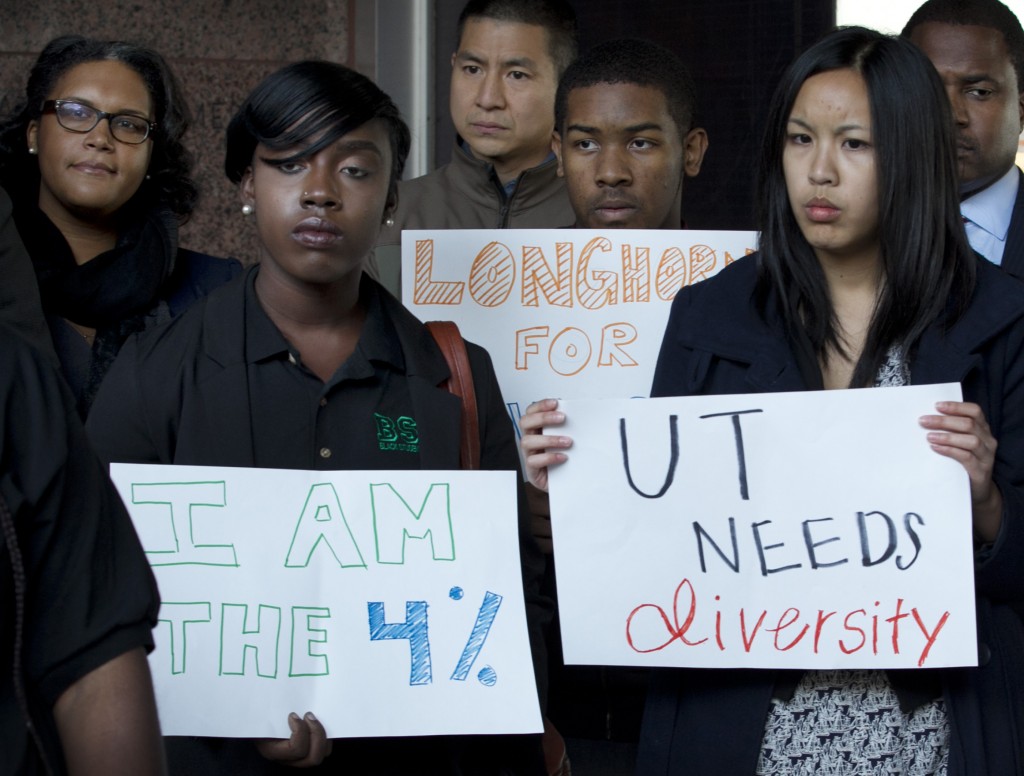- California Assembly OKs highest minimum wage in nation
- S. Korea unveils first graphic cigarette warnings
- US joins with South Korea, Japan in bid to deter North Korea
- LPGA golfer Chun In-gee finally back in action
- S. Korea won’t be top seed in final World Cup qualification round
- US men’s soccer misses 2nd straight Olympics
- US back on track in qualifying with 4-0 win over Guatemala
- High-intensity workout injuries spawn cottage industry
- CDC expands range of Zika mosquitoes into parts of Northeast
- Who knew? ‘The Walking Dead’ is helping families connect
Controversial affirmative action case goes to Supreme Court again

Supporters of the University of Texas in its case against Abigail Fisher demonstrate at the Homer Thornberry Judicial Building in Austin, Texas. The 5th Circuit Court of Appeals is rehearing the case of Abigail Fisher, a white woman who in 2008 was not admitted to the University of Texas at Austin because she did not graduate in the top 10 percent of her high school class _ the criterion for 75 percent of the school’s admissions. (AP Photo/Austin American-Statesman, Jay Janner)
By Brian Han
The debate over affirmative action reignites as a Supreme Court case involving the University of Texas and a student goes up for round two.
The bottom line is that some Asian and white applicants feel marginalized during the admissions process due to alleged preferential treatment to those who are African American or Latino and from wealthier backgrounds or better schools.
It all started six years ago in the case Fisher vs. University of Texas, in which white student felt she had been rejected on the grounds of her skin color.
Colleges are calling the policy “qualitative diversity” and big names like the University of California still stand behind it.
But the data points to discrimination even between the African American and Latino students who are being accepted.
“Preferring minority students from wealthier, integrated backgrounds over minority students who have flourished despite economic hardships is at best counter-intuitive, if not an outright distortion of the diversity rationale,” Lawyers for Abigail Fisher said in court.
Furthermore, investigators found that 75 to 80 percent of students at the University of Texas are offered acceptance purely on academic achievement, while the rest are more likely to be handed out to African American or Latino students.
Many of the nation’s top schools are arguing that especially in states like California, a system like this is preferred to guarantee diversity in the student body.
The Supreme Court justices will be presented with arguments on Dec. 9.
















